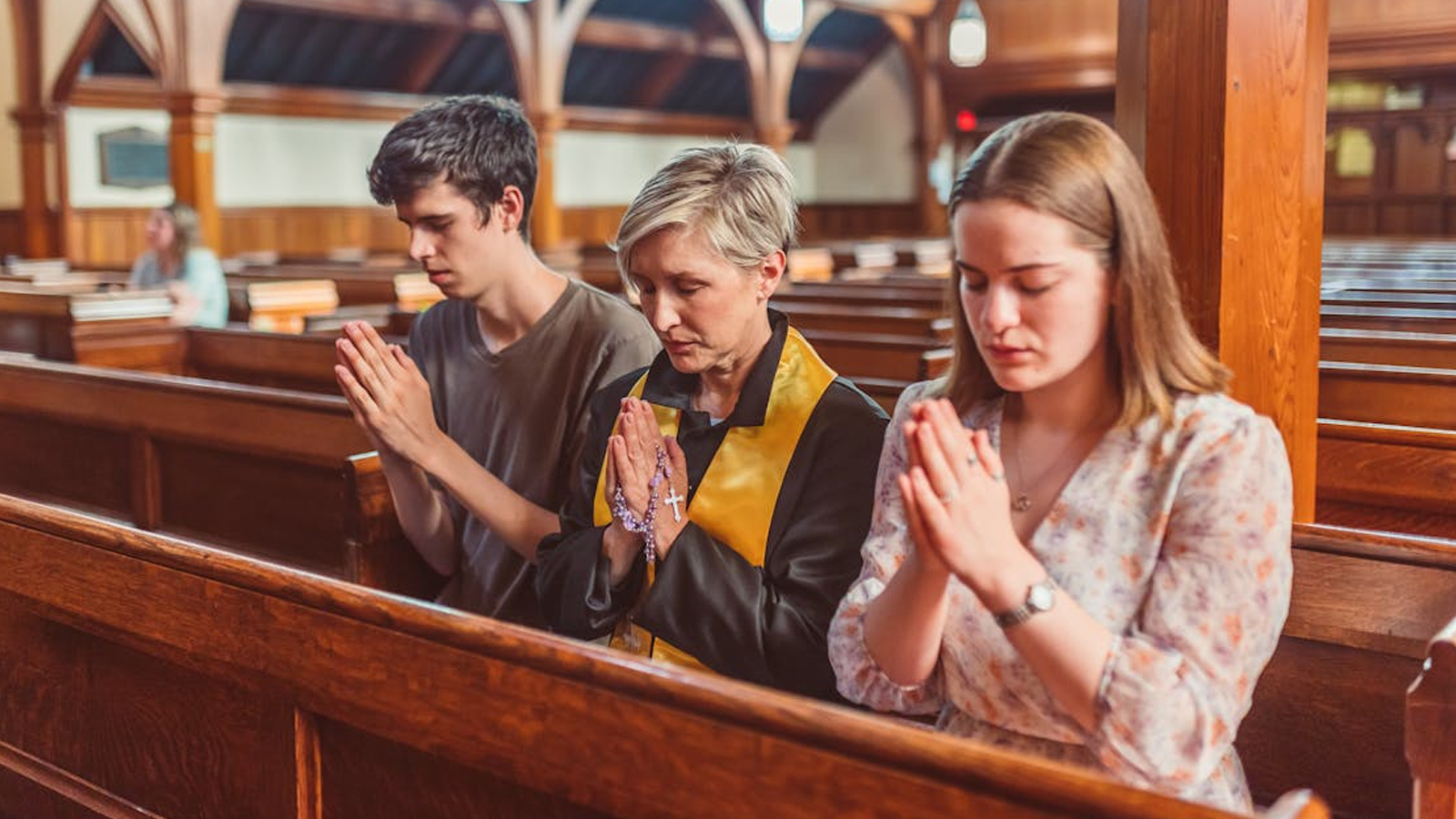 As a Christian, I’m often at odds with the culture around me. As our society embraces a growing number of unbiblical behaviors and attitudes, I find myself becoming more and more vocal in my opposition. I’m not alone; many other conservative Christians are also taking a stand for what the Bible teaches, particularly when it comes to moral behavior. Maybe that’s why I seem to hear Matthew 7:1 tossed around so frequently by those who want Christians to quiet down:
As a Christian, I’m often at odds with the culture around me. As our society embraces a growing number of unbiblical behaviors and attitudes, I find myself becoming more and more vocal in my opposition. I’m not alone; many other conservative Christians are also taking a stand for what the Bible teaches, particularly when it comes to moral behavior. Maybe that’s why I seem to hear Matthew 7:1 tossed around so frequently by those who want Christians to quiet down:
“Do not judge so that you will not be judged.”
Whenever we, as Christians, speak out against something in the culture, one of two labels is immediately employed in an effort to silence us: we are either branded “intolerant” or “judgmental”. To make matters worse, the second label is often attached to the teaching of Jesus Himself. Are we Christians defying the words of our Master when we speak against the behaviors, attitudes or worldviews affirmed by others? Did Jesus command us to be silently non-judgmental?
This selective use of scripture by the opposition is perhaps the finest example of what we at Stand to Reason are addressing when we caution people to “never read a Bible verse.” Matthew 7:1, when read in isolation from the larger context of the Sermon on the Mount, may seem to command a form of silent acceptance and tolerance advocated by the culture, but a closer examination of the verse reveals Jesus’ true intent. If Jesus was advocating some form of quiet tolerance, how do we explain the following statements?
“Do not give what is holy to dogs, and do not throw your pearls before swine, or they will trample them under their feet, and turn and tear you to pieces.” (verse 6)
“Enter through the narrow gate; for the gate is wide and the way is broad that leads to destruction, and there are many who enter through it. For the gate is small and the way is narrow that leads to life, and there are few who find it.” (verses 13 and 14)
“Beware of the false prophets, who come to you in sheep’s clothing, but inwardly are ravenous wolves.” (verse 15)
“Not everyone who says to Me, ‘Lord, Lord,’ will enter the kingdom of heaven, but he who does the will of My Father who is in heaven will enter. Many will say to Me on that day, ‘Lord, Lord, did we not prophesy in Your name, and in Your name cast out demons, and in Your name perform many miracles?’ And then I will declare to them, ‘I never knew you; depart from Me, you who practice lawlessness.’” (verses 21, 22 and 23)
Wow, Jesus seems vocally judgmental in these passages. Some people are dogs and swine, unworthy of our efforts. Some people are wrong about the path they choose. Some people are false prophets. Some people are true disciples and some are not. Jesus sure seems comfortable making judgmental statements about people in these passages. How could Jesus say such things when he began this part of the sermon by saying, “Do not judge so that you will not be judged”? Maybe we should revisit the first verses of Matthew 7:
“Do not judge so that you will not be judged. For in the way you judge, you will be judged; and by your standard of measure, it will be measured to you. Why do you look at the speck that is in your brother’s eye, but do not notice the log that is in your own eye? Or how can you say to your brother, ‘Let me take the speck out of your eye,’ and behold, the log is in your own eye? You hypocrite, first take the log out of your own eye, and then you will see clearly to take the speck out of your brother’s eye.” (Matthew 7:1-5)
It turns out that Jesus is not prohibiting vocal discernment in these passages, but is cautioning against a certain kind of unbecoming behavior: hypocritical judgmentalism. We are called to live differently so that we can effectively identify and address unbiblical behavior in our culture. I cannot be a practicing thief and effectively caution against thievery. I cannot be an active adulterer and effectively advocate monogamy. I’m going to have to “first” stop and assess my own behavior (take out my own “log”) before I can “then” caution others about their behavior (help them take the “speck” out of their eye). This is a “first / then” commandment. Both sides of the directive are important; Jesus is commanding two equally critical actions. First, we must change our behavior; become people of God who are above reproach. Second, we must actively engage others about their behavior. Some ideas are good and some are bad. Some prophets are true and some are false. Some people are right, some people are wrong. We are called to make statements about such things after we eliminate hypocrisy in these areas of our own lives. We, as Christians, are called to (1) live righteously, and (2) speak out about unrighteousness. We are less likely to do this, however, if we allow folks misquote Jesus in an effort to silence us. We are called to live differently so that we can effectively identify and address unbiblical behavior in our culture. Share on X
 For more information about the reliability of the New Testament gospels and the case for Christianity, please read Cold-Case Christianity: A Homicide Detective Investigates the Claims of the Gospels. This book teaches readers ten principles of cold-case investigations and applies these strategies to investigate the claims of the gospel authors. The book is accompanied by an eight-session Cold-Case Christianity DVD Set (and Participant’s Guide) to help individuals or small groups examine the evidence and make the case.
For more information about the reliability of the New Testament gospels and the case for Christianity, please read Cold-Case Christianity: A Homicide Detective Investigates the Claims of the Gospels. This book teaches readers ten principles of cold-case investigations and applies these strategies to investigate the claims of the gospel authors. The book is accompanied by an eight-session Cold-Case Christianity DVD Set (and Participant’s Guide) to help individuals or small groups examine the evidence and make the case.
J. Warner Wallace is a Dateline featured Cold-Case Detective, Senior Fellow at the Colson Center for Christian Worldview, Adj. Professor of Christian Apologetics at Talbot School of Theology, Biola University, author of Cold-Case Christianity, God’s Crime Scene, and Forensic Faith, and creator of the Case Makers Academy for kids.
Subscribe to J. Warner’s Daily Email
























Pingback: The Verse the Culture Misquotes Most Regularly in an Effort to Quiet Christians
Pingback: Which Bible verse is used most frequently by non-Christians to attack Christianity? | Wintery Knight
Pingback: The Verse the Culture Misquotes Most Regularly in an Effort to Quiet Christians | TLG Christian News
Pingback: The Verse the Culture Misquotes Most Regularly in an Effort to Quiet Christians – NaperCov café
Pingback: Why Making a Case for the Bible Is More Important Than Arguing About Politics | Apologetics.com
Pingback: Why Making a Case for the Bible Is More Important Than Arguing About Politics | TLG Christian News
Pingback: The Top 10 Cold-Case Christianity Articles from 2016
Pingback: The Verse the Culture Misquotes Most Regularly in an Effort to Quiet Christians | Cold Case Christianity – Reformed faith salsa style
Theodore A. Jones
January 19, 2021 at 10:21 am
“For it is not those who hear the law who are righteous in God’s sight, but it is those who obey the law who will be declared righteous.” Romans 2:13